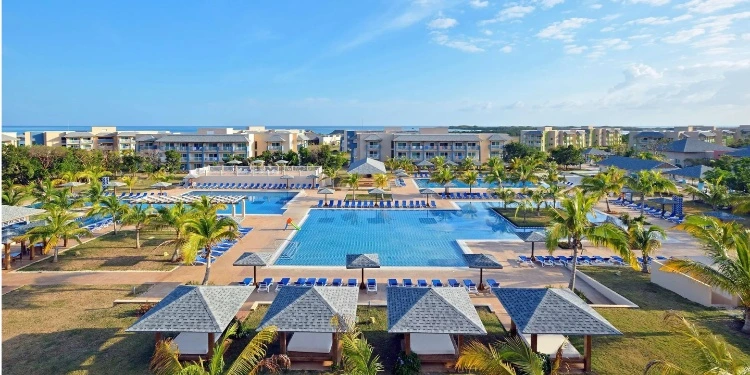SAN LUIS POTOSÍ, Mexico – The Cuban regime has promoted a Master’s Degree in Tourism Management for workers in Cayo Cruz, located in Jardines del Rey, at a time when that economic sector is in decline. The postgraduate program is affiliated with the Center for Multidisciplinary Studies in Tourism (CEMTUR, by its Spanish acronym) at the University of Camagüey.
According to state-run media, the upcoming edition of the Tourism Management Master’s (the ninth) is offered to professionals working in the three main entities in that hotel zone: the Gaviota Group, the real estate company, and the Construction Company for Tourism Projects.
Geiser Perera, the main specialist at CEMTUR, highlighted that the professors include faculty from the University of the Balearic Islands and others from Málaga, with 92% holding a doctorate.
“It is a Master’s degree of excellence that allows for tailoring the content to the client’s needs,” Perera emphasized.
Additionally, he mentioned that an advisory technical council for the Ministry of Tourism delegation and the Territorial Program for Technology and Innovation for the province has already been established.
The regime continues to prioritize tourism, even though the number of international visitors continues to decline.
This proposal comes amid a crisis in the Cuban education system, characterized by a shortage of teachers and crumbling schools.
Cayo Cruz is one of the tourism destinations promoted by the regime, with a significant growth plan in place. By 2023, around 25,000 rooms were projected to be built, spread across Cayo Cruz and the neighboring Mégano Grande, Guajaba, and Sabinal keys.
However, tourism has yet to reach pre-pandemic levels. Last week, the Cuban government revised and lowered its 2024 tourist arrival estimate by 16%, marking a decrease of half a million visitors (from 3.2 million tourists to 2.7 million), according to data from the National Office of Statistics and Information (ONEI, by its Spanish acronym).
Cuba welcomed a total of 1,680,485 visitors during the first half of 2024, according to official ONEI figures. Although this number represents a 101.1% increase compared to the previous year, it reflects only a 0.9% rise compared to the same period in 2023. Despite recovery expectations, the island remains far from reaching 2019 figures when more than 4 million tourists visited. In contrast, tourist destinations like Punta Cana (Dominican Republic) and Cancun (Mexico) have managed to surpass their pre-pandemic levels.
Sigue nuestro canal de WhatsApp. Recibe la información de CubaNet en tu celular a través de Telegram.
